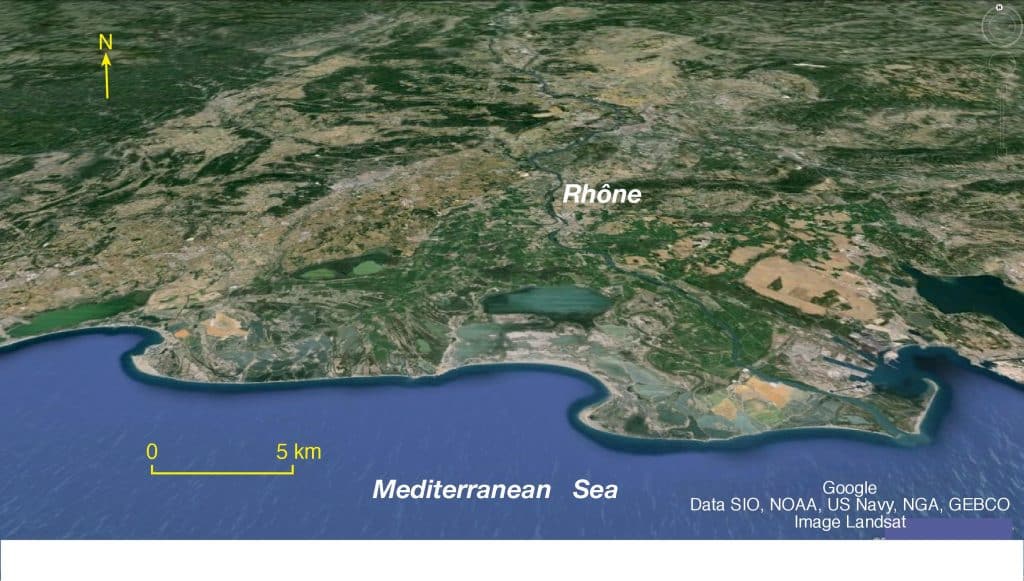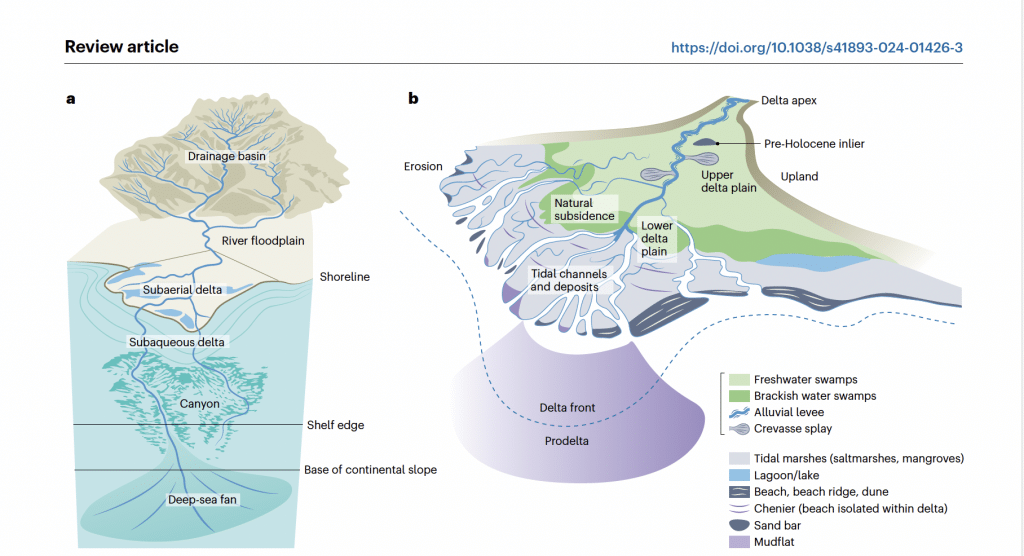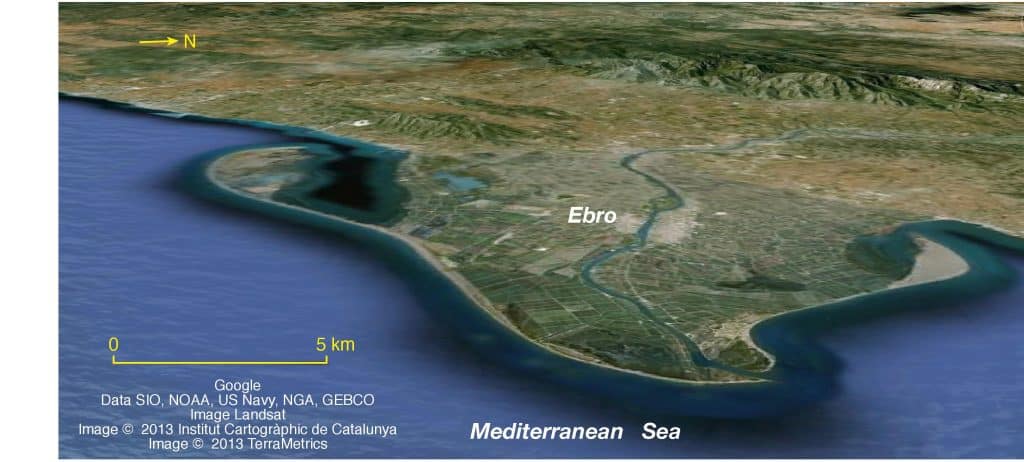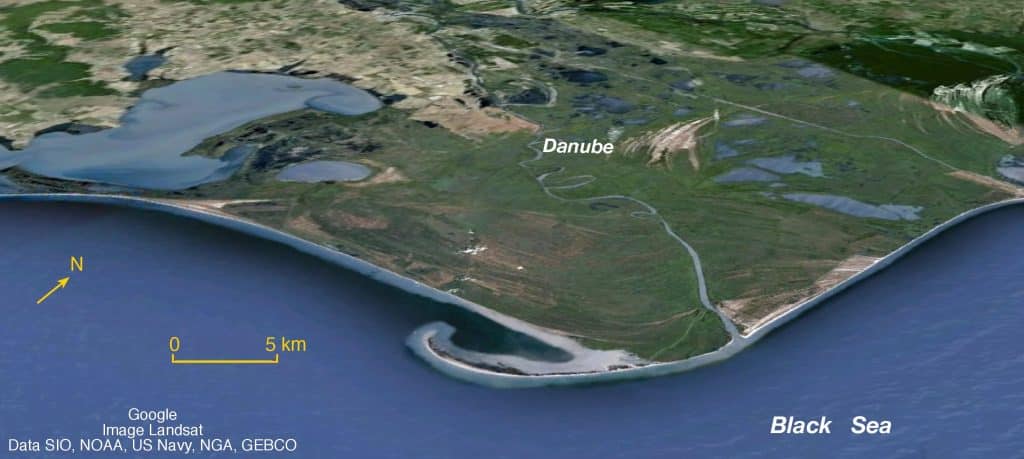In a review published in Nature Sustainability, an international group of scientists from Europe, the United States and Asia explore how river deltas have played a central role in the development of societies over the last 7,000 years.
From the rise of the first centres of power and city-states in Mesopotamia, the Nile delta and the Asian deltas, the study reveals how the natural growth of these deltas - fed by river sediments - accompanied human progress.
Deltas have fostered innovations in water management, subsidence control and erosion mitigation, creating a profound interdependence between human civilisation and these dynamic environments.
However, while deltas continue to support megacities and vast economic activities, they are under increasing pressure in the Anthropocene.
To ensure their sustainability, deltas must withstand the rise in sea level caused by global warming. However, human pressures and reduced sediment supply are making them increasingly vulnerable, posing a major threat to their survival.
The study outlines the critical challenges facing deltas, particularly in terms of governance, management and planning, and highlights the importance of new technologies and strategies to address these issues.
Despite the potential solutions, the authors stress that without climate stabilisation, it will be extremely difficult to preserve the deltas. In scenarios of extreme sea-level rise (up to or exceeding two metres in the next two centuries), deltas could gradually sink, making human life and economic activities in these regions unsustainable.
This article, entitled " Delta Sustainability from the Holocene to the Anthropocene and Envisioning the Future The report, entitled "A future of mass migration from flooded deltas to higher ground, potentially putting an end to the long relationship between humans and deltas", looks ahead to a future marked by mass migration from flooded deltas to higher ground, potentially putting an end to the long relationship between humans and deltas.
Ultimately, the world may have to adapt to living with partially or fully submerged deltas.
Edward Anthony1, Jaia Syvitski2, Florin Zăinescu1,3, Robert J. Nicholls4, Kim M. Cohen5, Nick Marriner6, Yoshiki Saito7, John Day8, Philip S.J. Minderhoud9,10,11, Alessandro Amorosi12, Zhongyuan Chen13, Christophe Morhange1,14, Toru Tamura15,16, Alfred Vespremeanu-Stroe3, Manon Besset17, François Sabatier1, David Kaniewski18, Vittorio Maselli19
1*Aix Marseille University, CNRS, IRD, INRAE, Coll France, CEREGE, Aix-en-Provence, France.
2INSTAAR & Dept. Geol. Sci, University of Colorado, Boulder CO, 80309, USA.
3Faculty of Geography, University of Bucharest, Bucharest 010041, Romania.
4Tyndall Centre for Climate Change Research, University of East Anglia, Norwich, NR4 7TJ, UK.
5Utrecht University, PO Box 80125, 3508 TC Utrecht, The Netherlands.
6CNRS, ThéMA, Université de Franche-Comté, UMR 6049, MSHE Ledoux, 32 rue Mégevand, 25030 Besançon Cedex, France.
7Estuary Research Center, Shimane University of Matsue, 690-8504, Japan.
8Dept. of Oceanography & Coastal Sciences, College of the Coast & Environment, Louisiana State University, Baton Rouge LA, 70803, USA.
9Soil Geography and Landscape Group, Wageningen University, Droevendaalsesteeg 3, 6708 PB Wageningen, The Netherlands.
10University of Padova, Department of Civil, Environmental and Architectural Engineering (ICEA), Via Marzolo, 9 - 35131 Padova, Italy.
11Department of Subsurface and Groundwater Systems, Deltares Research Institute, Daltonlaan 600, 3584 BK Utrecht, the Netherlands.
12Department of Biological, Geological, and Environmental Sciences, University of Bologna, Piazza di Porta S.Donato 1, Bologna, Italy.
13State Key Laoboratory of Estuarine and Coastal Research, East China Normal University, Shanghai 200062, China.
14Ecole Pratique des Hautes Etudes,PSL-AOROC, Paris, France.
15Geological Survey of Japan, AIST, Tsukuba, Ibaraki 305-8567, Japan.
16Graduate School of Frontier Sciences, Graduate School of Frontier Sciences, The University of Tokyo, Kashiwa, Chiba 277-8561, Japan.
17i-Sea, Bordeaux Technowest, 25 rue Marcel Issartier, 33700 Mérignac, France.
18Centre de Recherche sur la Biodiversité et l'Environnement (CRBE), Université de Toulouse, CNRS, IRD, Toulouse INP, Université Toulouse 3 - Paul Sabatier (UT3), Toulouse, France





